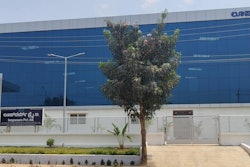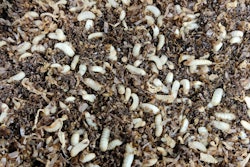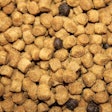
LanzaTech Global, a carbon recycling company specializing in transforming waste carbon into sustainable fuels and materials, announced plans to expand its biorefining platform to include the production of LanzaTech Nutritional Protein (LNP), a microbial protein offering an alternative to plant and animal-based proteins for pet food and animal feed.
By leveraging its proprietary gas fermentation process, LanzaTech said it aims to produce a cost-competitive protein solution that supports a resilient food supply chain and requires significantly fewer land and water resources than traditional protein sources. LanzaTech’s LNP production can also be set up globally, independent of weather conditions, and has the potential to address food security issues worldwide.
The development of standalone LNP production facilities will enable LanzaTech to enter the growing alternative protein market, diversify its customer base, and expand revenue streams, said Dr. Jennifer Holmgren, CEO of LanzaTech.
“By coupling a new microbial production strain with our existing bioreactor technology, and our years of operating experience, we have developed a path to mass producing protein from CO2 ," said Dr. Holmgren. "For two years, we’ve operated a pilot facility to prepare for commercialization, and in the process, we’ve partnered with leading brands and food testing organizations for rigorous analysis and prototyping of nutrition applications. We have now progressed into the engineering design phase for a 0.5 to 1.5 metric ton per day facility expected to be operational in 2026 and have developed a roadmap to commercial-scale production in 2028."
Large-scale production by 2028
LanzaTech announced its plans to expand its gas fermentation platform to produce large quantities of LNP, addressing the growing global demand for protein as the world population is projected to reach 10 billion by 2050. The company estimates that an additional 250 million metric tons of protein will be required annually, and LanzaTech aims to meet this need without straining land, water resources, or biodiversity.
LNP, which has a complete amino acid profile and no allergenicity, leverages LanzaTech’s experience with biorefining carbon-rich waste streams. The company plans to build pre-commercial facilities capable of producing 0.5 to 1 metric ton of LNP per day by 2026, enough to meet the complete daily protein needs of around 9,000 people. Commercial-scale facilities, designed to produce over 30,000 metric tons per year, are expected to be operational by 2028.
LanzaTech's entry into the $1 trillion alternative protein market is driven by its proprietary biorefining platform, which already produces essential ethanol for various industries. The company is collaborating with several partners to evaluate potential sites for the first pre-commercial facilities.
Trials in animal feed, pet food
LanzaTech is nearing completion of trials for its LNP in animal feed, including pet food, and is working toward U.S. Food and Drug Administration (FDA) Generally Recognized as Safe (GRAS) certification for use in human food. The company is collaborating with various partners to explore innovative applications of LNP, including fish feed testing with the Center for Aquaculture Technologies and food prototyping for smoothies, dairy-free cheese and bread by food innovation firm Mattson.
In a groundbreaking project, LanzaTech has partnered with the U.S. Navy Research Lab to evaluate the viability of producing nutritional proteins using CO2 extracted from seawater. Funded by the Office of the Under Secretary of Defense for Research and Engineering, the Office of Naval Research, and the U.S. Naval Research Laboratory, this joint effort aims to meet the nutritional needs of military personnel using LanzaTech's gas fermentation technology.
Dr. Matthew Yates, research biologist at the U.S. Naval Research Laboratory, said, "Integrating LanzaTech's state-of-the-art gas fermentation technology with the U.S. Naval Research Laboratory’s Seawater Carbon Capture Process presents a valuable opportunity to develop a unique capability to meet the nutritional needs of soldiers and sailors across the Joint Forces while simultaneously enhancing the resilience of military operations in an evolving geopolitical landscape.”
The trials and partnerships are part of LanzaTech's broader efforts to establish LNP as a sustainable and versatile protein source.
Adapted from a press release.
















